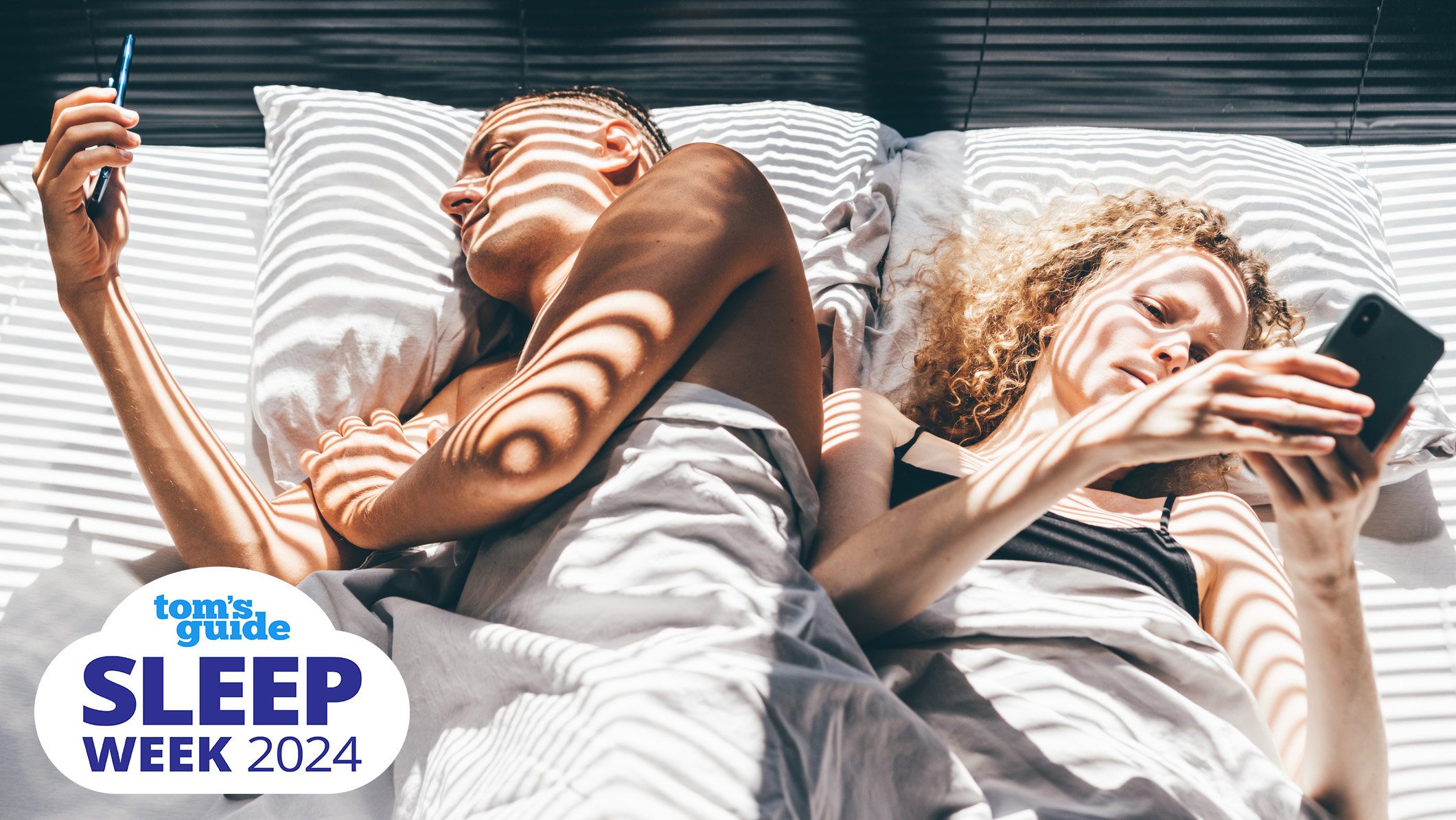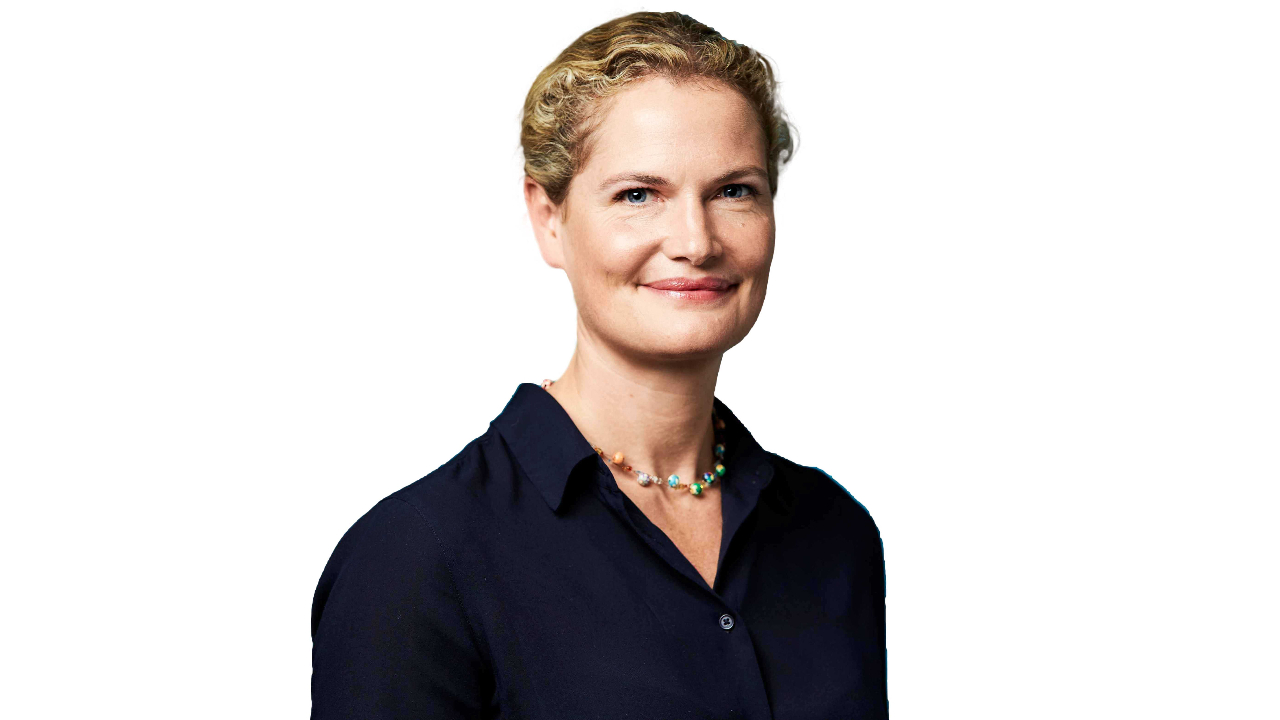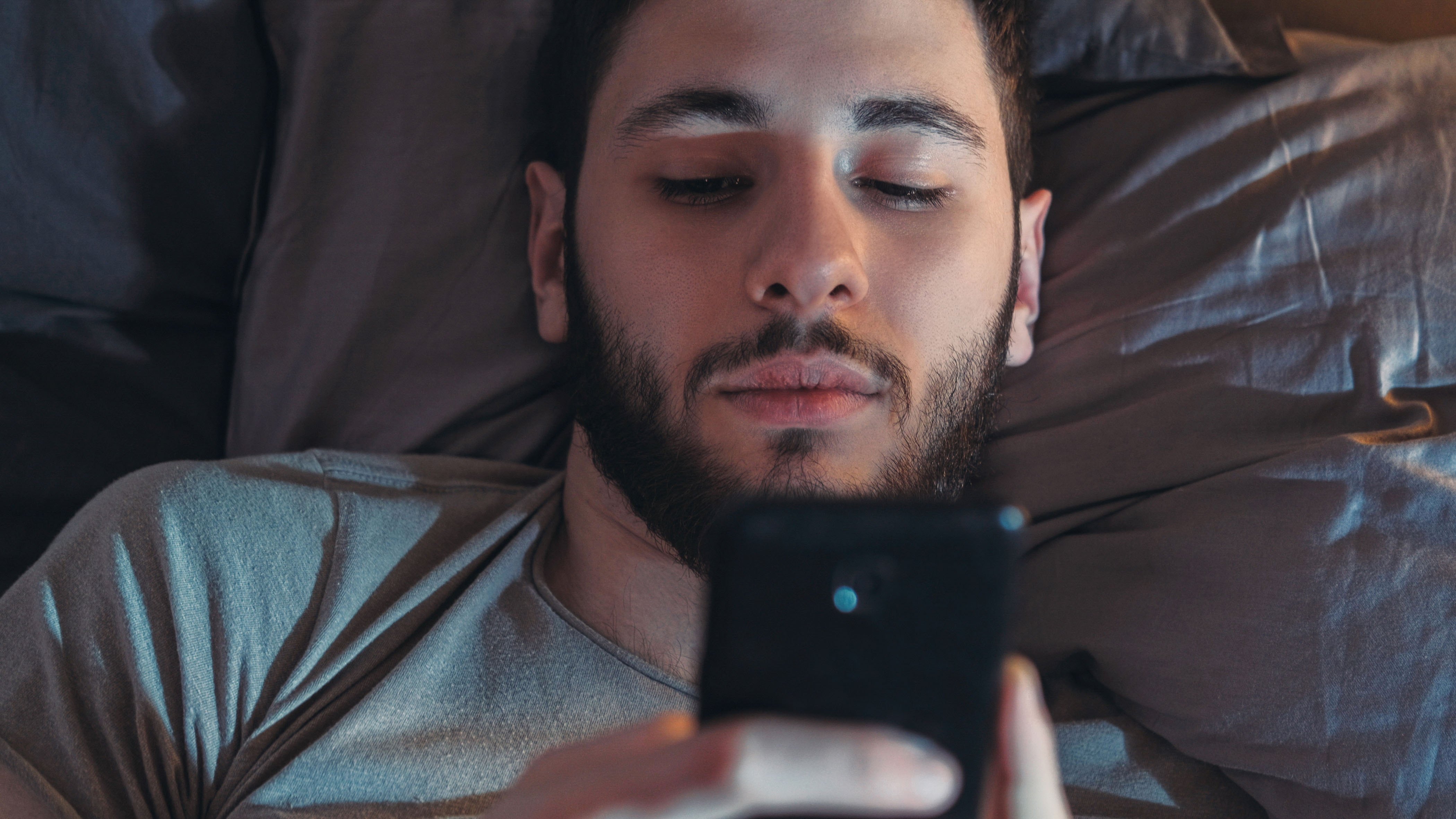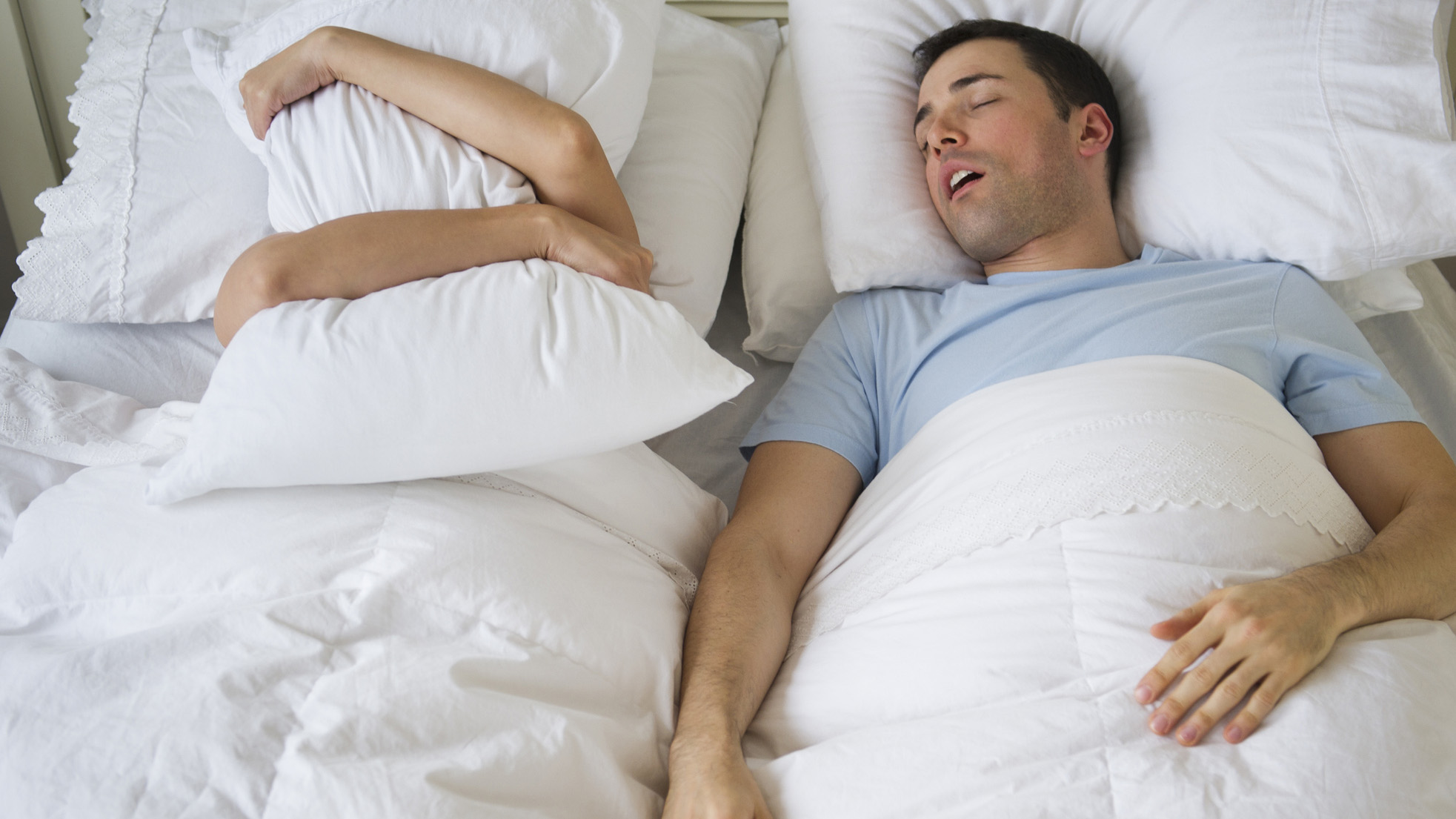Sleep doctor shares the top 5 causes of insomnia — and how to manage it
Insomnia is a common sleep disorder — here's what causes it and how you can manage yours

Getting enough sleep is just as important as the right diet and fitting exercise into your schedule – so if you’re suffering from a sleep disorder, like insomnia, it can affect your overall health.
Experts believe we need to get around seven to nine hours of sleep, but insomnia, a sleeping disorder which can mean you struggle to get to sleep or wake up constantly in the night, could leave you feeling drained and lacking focus or motivation for work or your personal life.
So what are the top five causes of insomnia? Can a stressful job or even anxiety make you more prone to this common sleep disorder? For Sleep Awareness Week 2024, we explore the research and talk to Dr Sophie Bostock, a leading doctor of sleep medicine, about the top five causes of insomnia. Plus, we look at how choosing the best mattress for your body can help you sleep better than ever.
Nectar Mattress: up to 40% off at Nectar Sleep
During Sleep Awareness Week, you can save up to 40% on memory foam and hybrid mattresses at Nectar Sleep. We rate the Nectar Memory Foam as a great choice for sleepers with a smaller budget seeking a breathable and supportive all-foam bed to relieve aches and pains. A queen is now reduced to $649 in the US and £600 for a double with a free bedding bundle in the UK. You'll also get a lifetime warranty and year's sleep trial.
What is insomnia?
Insomnia is a sleep disorder where you struggle to sleep, wake up in the night or find it hard to nap. The sleep disorder is normally diagnosed if you’ve struggled with sleep problems over a period of a few weeks, and it’s affecting your waking life.
Some people struggle with insomnia for just a short period of time, which is called short-term insomnia, and is usually between a few weeks up to three months. However, some of us can find it hard to sleep night after night, for months, or even years, which is classed as long-term insomnia.
Short-term insomnia can be bought on my other causes such as jetleg or shift work, but here are the main top five causes of insomnia...

Dr Sophie Bostock is founder of The Sleep Scientist and a member of the American Academy of Sleep Medicine and the British Sleep Society. Dr Bostock is a global name in sleep health and an expert on the causes of insomnia and how to better manage your sleep.
Top 5 causes of insomnia
1. Anxiety
If you’ve been kept awake worrying about work or another life matter until the early hours you could be suffering from insomnia caused by anxiety. In fact, studies have shown that anxiety is linked to insomnia, while sleep doctor Sophie Bostock explains: “There's a two-way bidirectional relationship between insomnia and anxiety. Insomnia heightens the sensitivity of our threat response - making the amygdala more sensitive, so we are more likely to overreact to stressors and ruminate about them.”
Sign up to get the BEST of Tom's Guide direct to your inbox.
Get instant access to breaking news, the hottest reviews, great deals and helpful tips.
Stress is also linked closely with anxiety, and thefore can bring on insomnia too, says the sleep expert: “Insomnia is a condition of hyperarousal – it's as if that stress response is permanently stuck in the 'on' position, and we find it increasingly difficult to relax physically and mentally. Chronic stress pushes the on button and makes it even harder to switch off.”

2. Your phone
If you spend hours scrolling on TikTok or binge-watch those boxsets until late - then we have bad news for you - it could be contributing to your insomnia. You may believe that watching a TV show can help you forget about sleep and help you fall into a peaceful slumber.
However blue light, which is emitted from mobile phones and TV’s, can suppress melatonin (the sleepy hormone), while scrolling for hours will make you more stressed.
“Doom scrolling often delays sleep time, and using our phones can spike a stress response, and make it hard to switch off. Concentration requires energy - it doesn't help us switch off,” says Bostock.
3. Bad diet
We all know a bad diet, full of sugar and alcohol can be tough on your helath, epsically if you consistently avoid the vegetable aisle, and instead opt for sugar laden meals, washed down with a glass or two of chablis. But can a bad diet, or too much alcohol, also affect your sleep?
The sleep expert says that alcohol can cause a vicious cycle: “We use alcohol to 'relax' but this disrupts sleep quality, so we need more caffeine and sugar the next day which make it harder to relax - so we use more alcohol.”
In fact, data by Whoop shows that when we consume alcohol our rest and recovery time is affected, because our HR is elevated and our HRV is lower - meaning we get less time in restorative sleep, which can then impact our health, and lead to anxiety around sleep.

4. Sleep environment
If you’re constantly getting disrupted sleep it could be one of the causes of insomnia. A partners snoring could keep you awake or bring on anxiety about being woken up. While a bedroom which lets in too much light, or is the wrong temperature, could also be disrupting you as you snooze.
Also, if you’ve ever slept in a bed where the mattress pokes into as you sleep, then it could be time to invest in a new one, and the same goes for that flat or lumpy pillow, yes, the one you constantly wriggle about on every night.
5. Underlying medical conditions
A study last year showed that women going through the menopause were more likely to suffer from insomnia - with Bostock explaining that it’s down to the ‘hormonal fluctuations’ in our bodies, which can ‘cause disrupted sleep for many women’.
While she adds that many chronic medical conditions are also linked to high rates of insomnia. “The reasons are likely to be multifactorial - biological, such as increased inflammation, perhaps lower cardiovascular fitness, but also psychological and emotional, owing to the chronic stress of coping with disease management, and behavioural, if for example we exercise less.”
If you’re worried this could be the cause of your insomnia make an appointment with your doctor for a check up.
How to cure insomnia
So, how can you avoid insomnia and sleep like a baby every night? Adopting some healthier lifestyle habits can impact your health and your sleep:

- Try and exercise every day, even if it’s just a 10 minute walk to and from work.
- Get out into sunlight every morning, to reset your circadian rhythm.
- Limit your smart devices before bed – and if you can, turn it on silent an hour before you sleep.
- Limit your intake of coffee after noon, and if you’re going to drink alcohol drink plenty of water, or try and stop two hours before bed.
- If you’re anxious about sleep try a meditation app such as Headspace before bed, to wind down properly.
- Talk to your doctor to make sure you don’t have any underlying health conditions or if your anxiety / stress levels get worse.
- Reassess your sleep environment – invest in new bedding, a new mattress and make sure you limit the light coming into your bedroom.
While Bostock goes on to add, that if none of these cure’s for your insomnia work, “the number one recommended treatment is Cognitive Behavioural Therapy. It’s a toolkit of behavioural and cognitive techniques to reset natural sleep patterns and help to cope with unhelpful beliefs about sleep.”
Sarah is a freelance writer who has been published across titles including Woman & Home, The Independent, and the BBC. Sarah covers a variety of subjects, including health and wellness. For Tom's Guide Sarah often writes about sleep health and hygiene, and interviews leading sleep experts about common issues such as insomnia and sleep deprivation.



